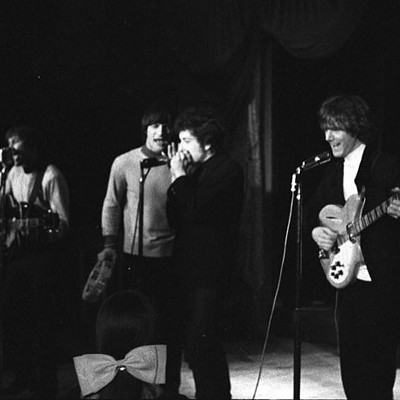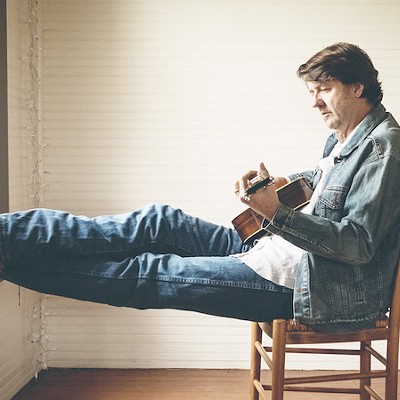George Jones: Described as "one of country's last links to its rural past" and (still) referred to these days as "the world's greatest living country singer," George Jones's monumental career began in earnest at Gold Star Studios in southeast Houston, where "Pappy" Daily brought the Big Thicket-born hillbilly to record "Why Baby Why" in 1955 for Starday.
The tune, written by Jones and Darrell Edwards, quickly raced to No. 1 on local country station KIKK and eventually would make it to No. 4 on the Billboard charts. Jones, who was living in Beaumont at the time, was already a raging alcoholic with frequent bouts of erratic behavior. But in spite of his drunken behavior both in and out of the studio, Jones had the talent, and Daily, who became his manager, had the savvy to propel Jones quickly to the top rungs of country music. Houston didn't figure long in Jones's career; by 1957 he and Daily had moved their operations to Nashville and began a long association with Mercury Records.
Sleepy LaBeef: As a youngster, Arkansas-born rockabilly boogie man Sleepy LaBeef moved to Houston, where he grew up with a gospel background. "Pappy" Daily recorded LaBeef for Starday in 1957, and LaBeef also released sides on tiny labels like Gulf, Wayside and Finn, but never had a real breakout hit.
LaBeef fell into obscurity until he was rediscovered by Peter Guralnick while playing a residency gig in Massachusetts, which brought him to the attention of Rounder Records, where he recorded numerous critically acclaimed albums up into the 1990s.
Bob McDill: Hailing from Beaumont, songwriter Bob McDill luckily came to the attention of "Cowboy" Jack Clement when Clement was operating Gulf Coast Recording Studios in Beaumont in the 1960s during McDill's college days at Lamar University.
McDill was in the Navy when he first tasted success when Perry Como cut his song "The Happy Man" in 1967. Relocating first to Memphis and then Nashville with Clement, McDill would go on to write 30 No. 1 hits, including "Amanda" (Waylon Jennings), "Nobody Likes Sad Songs" (Ronnie Milsap), "Song of the South" (Alabama), and "Gone Country" (Alan Jackson).
Known as a thinking man's writer, McDill may be best remembered for his immortal line, "And those Williams boys still mean a lot to me, Hank and Tennessee," part of "Good Old Boys Like Me," a No. 2 hit for Don Williams in 1980.
Frankie Miller: Originally from Victoria, Frankie Miller left college to pursue a music career. He was working clubs along the Gulf Coast when he got his first big break, filling in for Hank Locklin on Houston radio station KLEE.
In 1950. Locklin helped secure Miller a record deal and he released several sides, mostly original compositions, and appeared headed for stardom when he was drafted and sent to Korea. He returned to recording in 1954, but had the bad luck to be going in a country direction just as the rock and roll craze swept the nation.
"Pappy" Daily eventually heard Miller's "Black Land Farmer" and recorded the tune in 1959. It became a smash hit. But while he continued to write and perform, including frequent slots on the Louisiana Hayride and the Big D Jamboree, stardom never truly beckoned. But "Black Land Farmer" remains one of the truly great Houston recordings.
Laura Lee and Dickey McBride: McBride joined Cliff Bruner's seminal Houston Western Swing band the Texas Wanderers as vocalist in 1936. A fan of pop singer Perry Como, McBride brought a smooth, sophisticated vocal style to the Wanderers.
McBride is best known for his vocal on "It Makes No Difference Now," recorded on Bruner's 1937-38 Decca Records sessions. McBride would go on to front several bands in Houston before touring with Bob Wills with his wife, singer Laura Lee Owens.
Returning to Houston circa 1950, the McBrides were popular on local radio and television and continued to perform, and record in Houston up until Dickey McBride's death in 1971.





